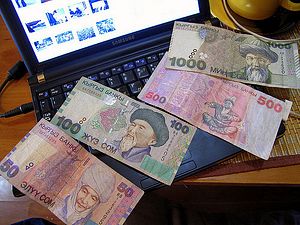Recent allegations involving former Trump campaign manager Paul Manafort and payments a “secret ledger” said he had received from a pro-Russian Ukrainian political party now appear to have been laundered via a bank in Kyrgyzstan.
The continuously unfolding Manafort scandal underscores three larger points: first, that corruption scandals never die, they just slip from the headlines; second, that Central Asia is not nearly as isolated from global matters as is assumed; and third, that Western countries have more of a hand in regional unrest than they’d like to admit (though not in the “color revolution” formulation, as some regional autocrats phrase it.)
Before tackling these three points, an overview of the latest developments regarding Manafort and the millions he was allegedly paid by the party of former Ukrainian President Viktor F. Yanukovych. As the New York Times reported Monday, a member of Ukraine’s parliament released documents “that he said showed that Mr. Manafort took steps to hide the payment… The documents included an invoice that appeared to show $750,000 funneled through an offshore account and disguised as payment for computers.”
The alleged invoice supporting the accusation was apparently found in a safe in the office Manafort used in Kiev by a subsequent occupant. The invoice, as the Times reports, “seems to corroborate one of the 22 entries” in a ledger from 2009 that came to light last August, leading to Manafort’s ouster from the Trump campaign.
The invoice, which bills Neocom Systems Limited for 501 computers, specifies that “Payment under the contract is performed by means of bank transfer to the account of the seller.”
According to the Times:
This was not the first time Neocom Systems had surfaced in a corruption probe. In a 2012 money laundering and stock fraud case in Kyrgyzstan, the Central Bank listed it as a shell company used for payments by AsiaUniversalBank, a lender seized by Kyrgyzstan’s Central Bank amid money laundering allegations
The money laundering taking place at AsiaUniversalBank was exposed after the bank was nationalized following the 2010 revolution. A 2012 Global Witness report delved into the bank’s centrality to a network of shell companies registered in a number of locations that enabled the owners to conceal their identities — including a company registered under the name of a dead man. The investigation “found significant indicators that suggest money laundering: hundreds of millions of dollars seemed to be moving through their accounts while they were not engaged in any real business activity.” The Global Witness report focused largely on U.K.-based companies and does not mention Neocom Systems or Ukraine.
The key point here is that such corrupt operations are so devilishly complex and secretive that concerted investigative efforts can only hone in on one portion of the tangled web. Corruption scandals are never truly over; they just fade from the news until an errant strand emerges amid current events. This is one worth tugging.
Furthermore, this is just another case that supports the line of argument offered, quite strongly, by Alexander Cooley and John Heathershaw and in their new book Dictators Without Borders: Power and Money in Central Asia. Central Asia’s elites, rather than being isolated from the world, have instead become intricately linked with international financial flows, often illicitly; and in turn, distant Western states are not uninvolved in seemingly local conflicts rooted in anger directed at corrupt elites.
“Our country was a laundry machine,” Edil Baisalov, interim President Roza Otunbayeva’s former chief of staff, told the New York Times with regard to Ukrainian money laundering through AsiaUniversalBank (AUB). AUB’s prestige, and legitimacy, was elevated by the presence of prominent figures on the bank’s board, including three former U.S. senators (Bob Dole, Donald Riegle Jr., and J. Bennett Johnston).
Ahead of mentioning AUB in their book, Cooley and Heathershaw note that the 2010 revolution in Kyrgyzstan “was no mere distant local conflict driven by ‘ancient ethnic hatreds’ and supposedly traditional patterns of nepotism and corruption”:
The underlying factors were and are global, political and financial. Rather than looking on helplessly as bystanders to a far-off story of corruption and conflict, Western authorities and businesses effectively fueled this scandal through the weakly regulated global financial system and the ranks of bankers willing to deal with foreign kleptocrats.
“A bewildering array of companies and service providers became entwined in Kyrgyzstan’s offshore banking experiment under the Bakiyevs, led by the upstart Asia Universal Bank (AUB),” they write.
Now it seems one company among that “bewildering array” has surfaced in relation to the explosive allegations directed at Manafort and even further, at the overall Trump campaign team. As the Manafort news broke, Federal Bureau of Investigation director, James Comey, was facing down the U.S. House Intelligence Committee, confirming that the FBI was investigating whether the Trump campaign colluded with Russia. A number of Trump campaign and administration staff have alleged and confirmed ties to Russia, including Manafort and Michael Flynn, who was very briefly national security advisor.

































